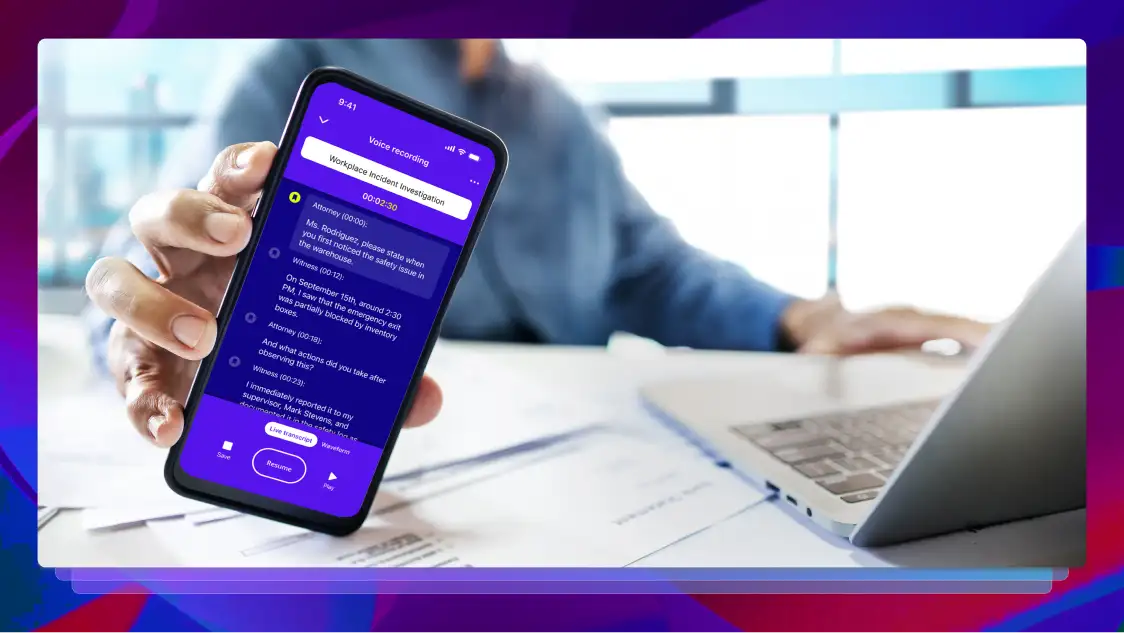Become a Better Podcast Host in Less Than 5 Minutes
What does it take be a good podcast host? It's harder than you might think! Learn more in with these ten tips.

Podcasts are the fastest-growing media format in the market today. Although the industry is overflowing with exciting talent and new ideas, not all podcasts achieve success. But what is the differentiating factor between an unnoticed and a successful podcast?
The host.
As the host, you are (in most cases) the central driving force behind it all. You control the content, the guests, the audience engagement. Everything!
Becoming a great podcast host takes a certain level of skill, practice, and a bit of know-how. Let’s look at how you can become a good podcast host with these ten tips and strategies.
Try Rev Transcription to Grow Your Podcast Audience
Know Your Audience
Your goal is to produce content that will resonate far beyond a simple conversation. You’ve got to go deep into the mind of your listener. That way, you will create better content and form a deeper connection that will keep your audience tuning in and engaged.
Just like a mind reader, a great podcast host understands what’s running through their listener’s heads. As you’re recording, ask yourself, “What could my audience be thinking or feeling right now? Is something I said confusing? What questions could I ask to provoke a deeper, more meaningful conversation?”
Be Authentic
If you think about it, podcasts are incredibly intimate. They are a singular relationship between host and listener. With that in mind, strive to connect with your audience. The best way to do that is to just be yourself.
A recent survey showed that 83 percent of podcast listeners said their favorite podcast hosts felt like friends. So, why not act like one? Audiences take comfort in hosts that show their vulnerability, authenticity, humor, and individuality.
Use your everyday language and slang. Express your point of view, tell personal stories, make mistakes, laugh, and above all, enjoy yourself.
Review Past Podcast Episodes
Listening back to past episodes is one of the best ways to improve your hosting skills. As you listen, jot down anything that may need some work.
During the recording process, certain cues or bad habits can go unnoticed. You will soon pick up any audio issues, lousy interview questions, or unwanted vocal tics. Using a service like Alitu, which can help you quickly record and edit episodes, can also shorten your feedback cycle and help you improve more quickly.
Be Prepared
Nobody appreciates a host that rambles or doesn’t understand their subject matter. It doesn’t matter if you’re only just starting a podcast or have been creating them for years — you must be prepared.
Write a show outline with research notes, scripts, bullet points, or questions. This way, you can refer to your notes as you record. By being prepared, you can speak with more confidence and focus, which will help to engage and inform your audience.
Find The Right Guest
When choosing a podcast guest, choose wisely. You have a duty to your audience to interview guests that align with your listeners’ wants and needs.
Don’t be afraid to vet your guests! Ask yourself, will this guest benefit your listeners and give them the content they want? Can this guest provide entertaining stories that will engage your audience?
The hard truth is, just because someone is famous doesn’t mean they’re right for your show.
Research Your Guests
To get the most out of your interview, research as much as you can about your guest. Read their books, look at their social media and LinkedIn. Dig into their articles and blogs and listen to any podcasts they’ve been on or hosted.
Your knowledge will show your guest that you care about them. It will also prevent you from asking generic questions and spark an original conversation that’s just pure interview gold.
Transcribe Your Episodes
A great host strives to provide as much value as possible for their audience. One way to do that is by creating episode transcripts.
By transcribing and publishing your episodes, you can significantly enhance the user experience, promote inclusivity (especially for the hearing impaired and non-native speakers) and increase discoverability by maximizing your SEO.
Want to grow an audience and boost listener engagement even further? Try repurposing your transcripts by turning them into blogs, social media posts, infographics, audiogram captions, show notes, and quotes.
For podcasters, creating transcripts can be tedious and time-consuming. Here at Rev, we offer accurate, affordable, and fast transcription services, but we also provide the option to have each transcript timestamped. Timestamps make reviewing and editing audio so much faster, saving busy podcasters valuable time and energy!
Have a Pre-Interview Process
Just because you’re relaxed behind the mic doesn’t mean your guest will be. A good host makes their interviewee feel at ease, and one way to do that is to have a pre-interview process.
Send a short welcome email. In it, let your guest know why you’re interviewing them and what you wish to get from your conversation. Also, send out some sample questions to let your guest prepare ahead of time.
Before you start recording, grab a cup of coffee (or your beverage of choice) and have a friendly chat with your guest. Get to know each other for a few minutes. As they become more at ease, you can then move into the interview with that same conversational energy.
Show Some Appreciation
Why should you thank your listeners at the end of every single episode? Because a little bit of love can go a long way. After all, your audience is an integral part of your podcast. Think about it; your show wouldn’t succeed if it weren’t for them.
They’re taking the time to tune in, subscribe, and provide you with beneficial feedback. So, it’s only right that you should thank them for their support. Create a “thank you” Tweet, Facebook post, or Instagram video and share the love.
Ask for Feedback
However much you may hate the idea, feedback allows your audience to tell you exactly how they feel about your show. By collating and reviewing your feedback, you can create more listener-orientated content.
Ask your audience to answer a few simple survey questions such as, how does your audio sound? What’s awesome about your show? Is there specific content listeners would like to hear?
Include a link to your online survey in the show notes and on your podcast’s website. Alternatively, provide your email address and social media handles so listeners can easily get in touch. Also, make sure to mention your survey within your podcast episodes.
Becoming a great podcast host doesn’t happen overnight. It is a process of constant evolution. There are so many parts to good hosting that it can seem like a lot. But remember, your listeners are there for you. So be yourself and keep creating content you and your audience will love.
Transcribe your podcasts with Rev.
Subscribe to The Rev Blog
Sign up to get Rev content delivered straight to your inbox.



